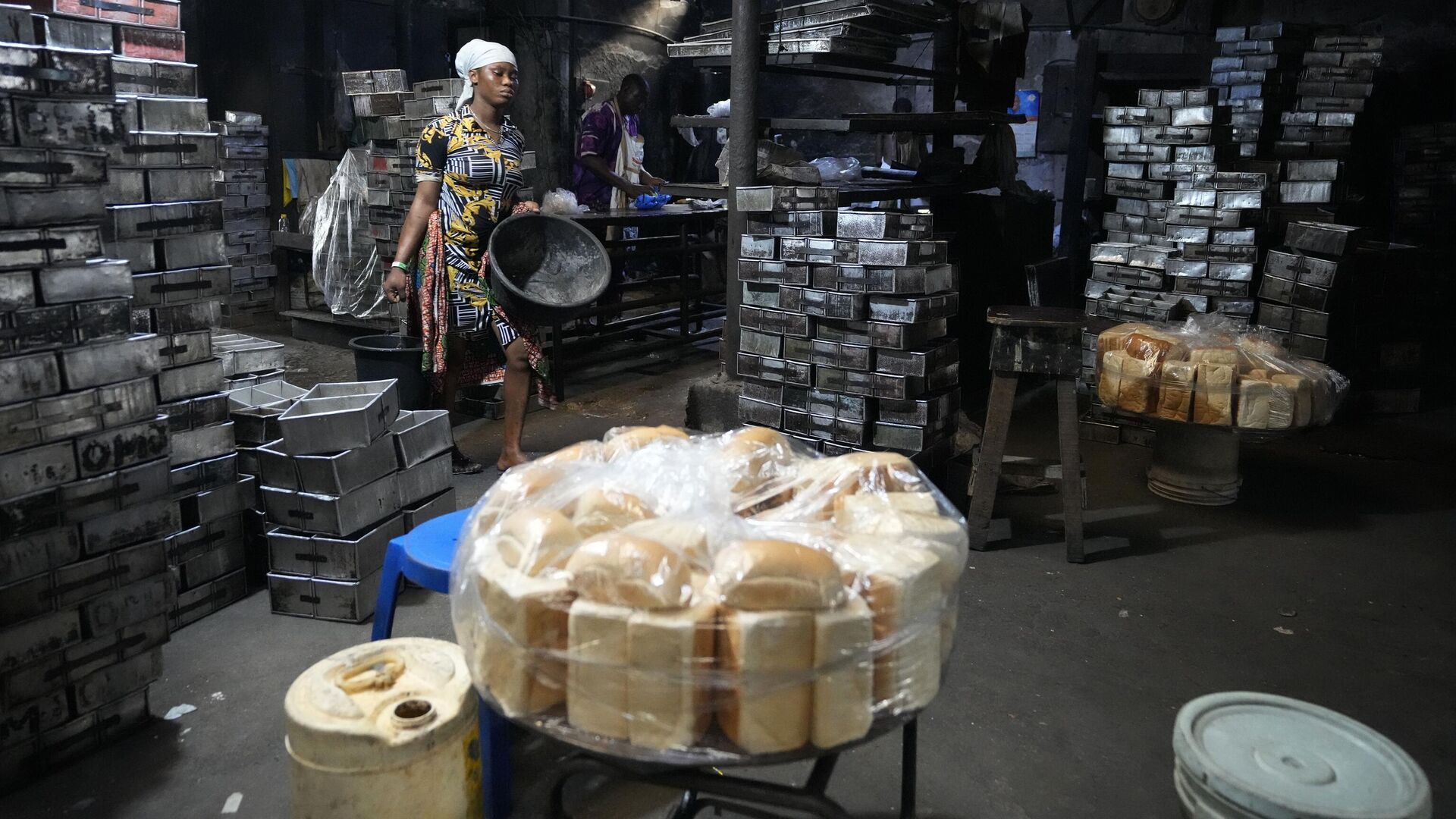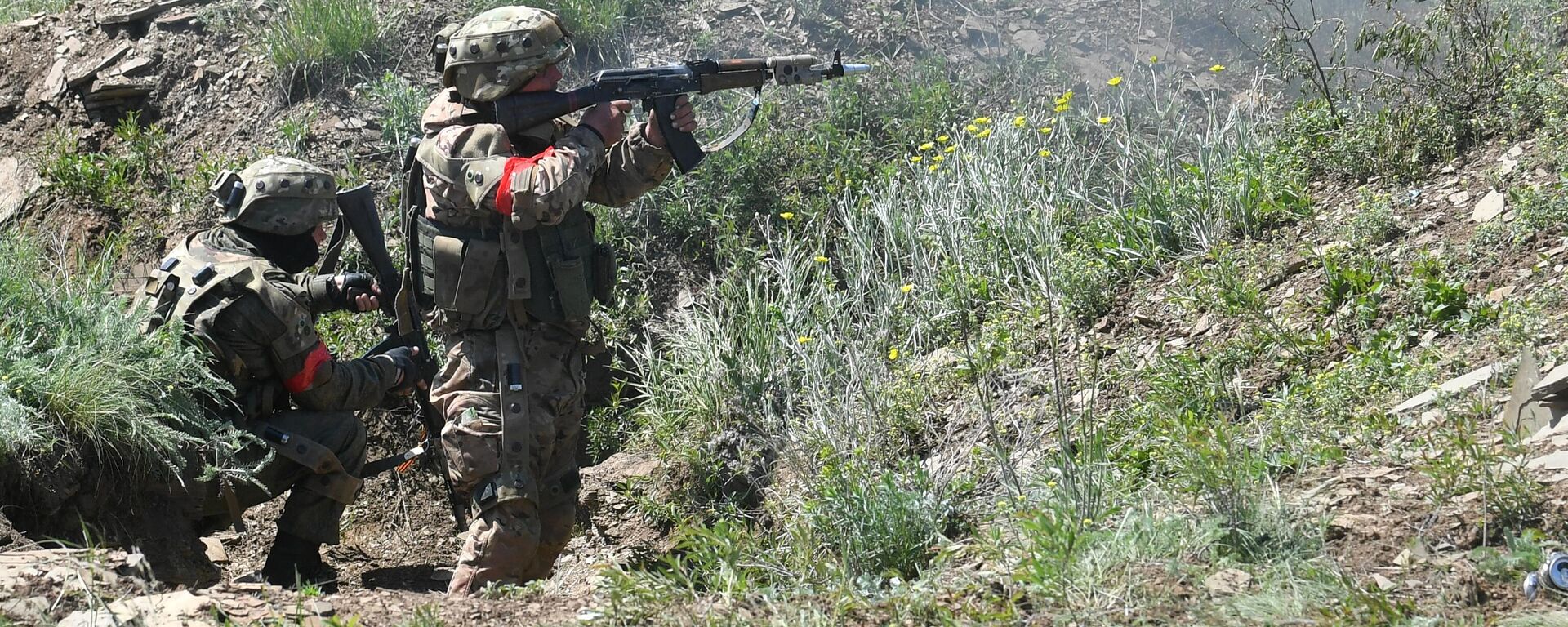https://en.sputniknews.africa/20230608/playing-with-hunger-expert-on-wests-attempts-to-control-markets-in-proxy-war-against-russia-1059801991.html
'Playing With Hunger': Expert on West's Attempts to Control Markets in Proxy War Against Russia
'Playing With Hunger': Expert on West's Attempts to Control Markets in Proxy War Against Russia
Sputnik Africa
On Wednesday, the Russian Defense Ministry stated that a Ukrainian sabotage group had blown up the Togliatti-Odessa ammonia pipeline in the Kharkov region. The... 08.06.2023, Sputnik Africa
2023-06-08T18:41+0200
2023-06-08T18:41+0200
2023-08-03T10:43+0200
russia
ukraine
armed forces of ukraine
fertilizers
grain
grain deal
black sea grain initiative
opinion
africa insight
ukraine crisis
https://cdn1.img.sputniknews.africa/img/07e7/06/08/1059802237_0:320:3072:2048_1920x0_80_0_0_deca4159c0cacd081168158fcd3cbd01.jpg
Acts of sabotage conducted by the Kiev regime, including the recent attack on the Togliatti-Odessa ammonia pipeline, are carried out not for the benefit of Ukraine, but in the interests of the Western states that seek to prevent Russian fertilizers from entering global markets, said Andrey Suzdaltsev, associate professor at the Department of International Relations, National Research University Higher School of Economics, in an interview with Sputnik Africa.The political scientist recalled that the facility was one of the Russian conditions for extending the grain deal. Its operations stopped on February 24 due to the situation in Ukraine, and Russia has repeatedly requested to resume the transit. However, the pipeline was "simply physically destroyed, blown up." He explained that this kind of action shows that Kiev doesn't want any negotiations.Speaking about Kiev's motives, Suzdaltsev underlined that the destruction of the pipeline or suspension of its operations do not benefit the country, which needs money, and "a working ammonia pipeline would give this money as the remaining gas transit does." Therefore, he concluded, the interests of third parties are behind Kiev's actions.He reiterated that Kiev, on instructions from the West, "is even doing what is not profitable for itself."Suzdaltsev explained that large-scale supplies of fertilizers and grain from Russia to world markets would lower prices, thus benefiting countries experiencing severe food shortages and improving food security in many regions across the globe. However, the West is hindering this process, he underscored.Despite EU sanctions, he recalled, Russia has managed to provide some African countries with free fertilizers, and continues to support the continent in its efforts to eliminate food insecurity.According to Suzdaltsev, after the attack on the pipeline, the grain deal is no longer of any interest to Russia. He stated that Moscow's demands were quite moderate, and "the logic was that if Ukrainian grain was exported, why Russian grain and fertilizers could not be exported." The current situation is now "more conducive to Moscow's exit from the deal," as there is no point for Russia to extend it.Apart from this, he noted that in practice "the grain deal has nothing to do" with the provision of cheap grain to countries that are in need, in particular African states, as no more than 3% of ships with grain are sent to nations facing shortages of food.At the same time, he said, the West is trying to portray Russia as responsible for the situation on world markets, which it "holds in a stranglehold."The Black Sea grain initiative was brokered by the United Nations and Turkey in July 2022 to facilitate exports of Ukrainian agricultural products from Black Sea ports during the hostilities that began in February of that year. The package agreement also includes a memorandum of understanding between Russia and the UN to unblock Russian grain and fertilizer exports via the Black Sea, which, according to Moscow, has not been implemented due to Western sanctions.
https://en.sputniknews.africa/20230607/ammonia-pipeline-blown-up-by-ukrainian-saboteurs-in-kharkov-region-russian-mod-1059767847.html
russia
ukraine
Sputnik Africa
feedback@sputniknews.com
+74956456601
MIA „Rossiya Segodnya“
2023
News
en_EN
Sputnik Africa
feedback@sputniknews.com
+74956456601
MIA „Rossiya Segodnya“
Sputnik Africa
feedback@sputniknews.com
+74956456601
MIA „Rossiya Segodnya“
russia, ukraine, armed forces of ukraine, fertilizers, grain, grain deal, black sea grain initiative, africa insight, ukraine crisis
russia, ukraine, armed forces of ukraine, fertilizers, grain, grain deal, black sea grain initiative, africa insight, ukraine crisis
'Playing With Hunger': Expert on West's Attempts to Control Markets in Proxy War Against Russia
18:41 08.06.2023 (Updated: 10:43 03.08.2023) On Wednesday, the Russian Defense Ministry stated that a Ukrainian sabotage group had blown up the Togliatti-Odessa ammonia pipeline in the Kharkov region. The resumption of its operation was part of the so-called Black Sea grain deal, which covers grain and fertilizers exports and that was extended for two months on May 18.
Acts of sabotage conducted by the Kiev regime, including the recent attack on the Togliatti-Odessa ammonia pipeline, are carried out not for the benefit of Ukraine, but in the interests of the Western states that seek to prevent Russian fertilizers from entering global markets, said Andrey Suzdaltsev, associate professor at the Department of International Relations, National Research University Higher School of Economics, in an interview with Sputnik Africa.
The political scientist recalled that the facility was one of the Russian conditions for extending the grain deal. Its operations stopped on February 24 due to the situation in
Ukraine, and Russia has repeatedly requested to resume the transit. However, the pipeline was "simply physically destroyed, blown up." He explained that this kind of action shows that Kiev doesn't want any negotiations.
Speaking about Kiev's motives, Suzdaltsev underlined that the
destruction of the pipeline or suspension of its operations do not benefit the country, which needs money, and "a working ammonia pipeline would give this money as the remaining gas transit does." Therefore, he concluded, the interests of third parties are behind Kiev's actions.
He reiterated that Kiev, on instructions from the West, "is even doing what is not profitable for itself."
"I have no doubt that this is being done not in favor of Kiev, but in favor of some third forces that control the world grain and fertilizer markets and who do not want to see Russian grain and fertilizers there," he stated.
Suzdaltsev explained that large-scale supplies of fertilizers and grain from Russia to world markets would lower prices, thus benefiting countries experiencing severe food shortages and improving food security in many regions across the globe. However, the West is
hindering this process, he underscored.
Despite EU sanctions, he recalled, Russia has managed to provide some African countries with free
fertilizers, and continues to support the continent in its efforts to eliminate food insecurity.
"It turns out that it is Russia, and not the West, that is fighting to ensure that there is no world hunger," he concluded.
According to Suzdaltsev, after the attack on the pipeline, the grain deal is no longer of any interest to Russia. He stated that Moscow's demands were quite moderate, and "the logic was that if Ukrainian grain was exported, why Russian grain and fertilizers could not be exported." The current situation is now "more conducive to Moscow's exit from the deal," as there is no point for Russia to extend it.
Apart from this, he noted that in practice "the grain deal has nothing to do" with the provision of
cheap grain to countries that are in need, in particular African states, as no more than 3% of ships with grain are sent to nations facing shortages of food.
"There is a short list of 'political' goods. This list includes supplies of grain and fertilizers, because without them famine can occur. However, we see that the West is playing with hunger," Suzdaltsev underlined.
At the same time, he said, the West is trying to portray Russia as responsible for the situation on world markets, which it "holds in a stranglehold."
The Black Sea grain initiative was
brokered by the United Nations and Turkey in July 2022 to facilitate exports of Ukrainian agricultural products from Black Sea ports during the hostilities that began in February of that year. The package agreement also includes a memorandum of understanding between Russia and the UN to unblock Russian grain and fertilizer exports via the Black Sea, which, according to Moscow, has not been implemented due to Western sanctions.


